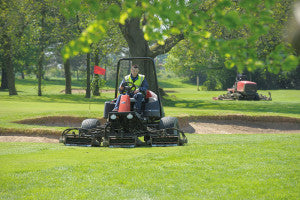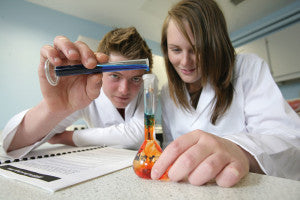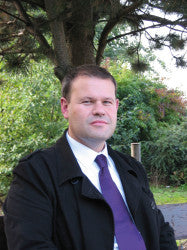Higher Education and you

This is a valid reason for some, but I would argue that money alone should not be your primary reason for embarking on a degree course. In the short term it is going to cost you money, or if you are fortunate to have a sponsor or enlightened employer, they will be paying for you. It is true that for the vast majority of graduates a higher education qualification can lead to increased earning potential, with most progressing more rapidly to senior positions of responsibility which, in turn, generally attract better salaries and employee benefits. You still need experience to get a supervisor or manager's job, but a degree will allow you to climb the ladder more rapidly and, as we shall see shortly, equip you with many other essential and desirable skills.
A degree, especially BScs and BAs, have international recognition. In any country with a developed education system, and that has a university, most of its citizens will recognise the term BSc / BA with many also appreciating what this means - of course for those that have completed such a degree, they will have direct knowledge of what such qualifications entail.
As such, they allow graduates to move into roles across the world as they have evidence of a level of education and skills usually required for many positions. Indeed, having a degree could be the difference between getting that work permit or visa in some countries. Remember that the sports turf industry is an international employer. Golf and football particularly are global sports and, wherever facilities exist for sport and recreation, they need maintenance and management.
If you want to work overseas, you will be competing against the indigenous population as well as others aspiring to do the same. In many "developed" countries this will mean graduates - certainly in the USA, many European countries and further afield like Australia this is often the case. A degree might just give you the edge but increasingly it is becoming an expectation. This is also the case in countries like China, India and Brazil. Why, also, do you think so many students from these countries come the west to study for a degree? It's because they recognise the importance of education for both individual, company and country success. They are investing for their own future and success - a goal which all should aspire to. Of direct interest to us of course is that these same countries, as well as being the growing economic and trading nations, also have developing leisure provision with more sports facilities being built.
Many people embark on a degree course to change career, find a new direction or to seek new opportunities. In my time in education, I have taught students who have come from agriculture and crop production, finance and banking, journalism and marketing. They have come from different backgrounds and wish to pursue a new career in sports turf. Generally, they all have a passion for sport and want a job where they can be involved in the preparation and management of sports surfaces.
Many of these students already have degrees in other subjects and recognise that if they want to succeed at the highest level a degree in their "new" profession will be a good start and, of course, it will give them the essential skills and knowledge that they need. For other people, getting a degree is a personal goal or dream. They want to challenge themselves academically, learn new skills and broaden their own knowledge and understanding of a subject they are passionate about. Studying and learning for its own sake can be very satisfying and rewarding - even if, at times, hard work!
What will I learn?
In short, you will be learning about your chosen subject - in our case - sports turf and all that that entails. Higher education is about taking your education to the next level though, so you may be familiar with the generic subject areas, for example turf maintenance, but you will be learning about such at a higher level and in far greater detail. I consider that our sports turf degrees are built on three essential pillars. These are technical knowledge, the science which underpins this knowledge and management.
To truly understand sportsturf operations which you may be imparting onto your turf grass sward, you need to know how it is impacting on the grass plant and the substrate it is growing in. Our profession is one developed primarily from applied biology with the key subjects being plant biology and soil science. It's all about the plant and its growth and development within and on the soil - often a highly modified soil we term a rootzone. In sportsturf, we grow genetically "improved" plants in such modified soils and then manage them through our cultural practices to provide surfaces for people to play sport on.
Sportsturf is really a branch of horticulture as we are growing plants for a specific purpose. Key cultural practices are mowing (a way of controlling plant growth), irrigation and fertiliser application (supplying the plant with water and essential nutrients). In principle, this sounds simple enough, but a skilled manager understands how these affect plant growth and subsequent surface performance. When dealing with "natural" grass surfaces, you are always subject to the effects of the weather and the demands of players and their impacts on your surfaces. You have to understand principles of agronomy and be able to adapt your maintenance and management practices - often in very limited time periods or within constrained budgets. This is management! As many would say, how can you manage something you do not understand?

You need to be able to "sort the wheat from the chaff" - a sales person will sell you anything. I think that most sales professionals (in our industry) are good but how can you make an informed decision without understanding all the facts or knowing the alternatives. Again, anything you do on the surface may affect its performance significantly; players will soon tell you if it's not satisfactory. In a similar vein, you need to be able to explain to players what you are doing and why.
There are times when maintenance practices must be done and communicating these effectively is essential. There has been a growth in surface testing in recent years for many sports surfaces, with players having greater knowledge of these and consequently greater expectations. Knowing how to achieve these comes from knowledge of cultural practices, and when and where such need to be done and to what level. Learning how to use new equipment and technology, both correctly and appropriately, is also important. It is also important to recognise and understand the limitations of such equipment - not all is suited to all situations. You may also wish to adapt methods, tools or equipment for a particular purpose. Monitoring of surface performance and setting goals and targets is key to good management but you do need to know the how, where and when.
Our students learn how to construct, maintain and manage surfaces used for sport. This is achieved in many ways including lectures, workshops, seminars, and practical sessions in the field and laboratory, field and industry visits, work placements and through their own research. These are interwoven into a teaching and learning programme that allows them to develop an in-depth knowledge and understanding of their chosen subject and career. Of course, it is a progressive journey over two or three years, for a full-time student, in which they develop increasingly more complex and demanding essential skills and knowledge. They also, significantly, grow in confidence and ability. A degree course will change you!
What else will I learn or gain from doing a degree?
Degrees are not just about learning about your subject! They will develop in you a wide range of skills and knowledge areas essential for life and employment. It's not just about depth but breadth as well! An underlying principle of a degree is the requirement to develop an independent learner and one who can critically examine and assess a range of concepts and practices associated with their chosen field. The ability to diagnose problems and analyse them critically before formulating solutions is part of the higher education learning process and one which will be invaluable in industry.
In your working life you will encounter problems, sometimes unexpectedly, how do you cope with this? This could be anything from a yellow patch appearing on your golf green, a member of staff leaving or your machinery budget being halved! What will you do? Working out solutions, finding answers is all part of daily life and employment. Having diagnostic skills for identifying turf diseases, understanding staff motivation and behaviour and being able to negotiate with machinery suppliers would all help here.
Would you know how to interpret a soils report, a fertiliser plan from a supplier a spreadsheet for a maintenance budget? Could you make your own? Research and investigative skills are also important to your work. Could you conduct a proper scientific trial for new fertiliser product and statistically analyse the data? Again if someone gave you such data would you be able to understand the key points? Could you interpret the results into a management plan? Where do you start to write a management plan? Evaluating and synthesising information and data from a range of sources will empower you to make effective decisions and know for yourself what is needed rather than relying on the words or advice of others.
In most sportsturf situations, you will be working as part of team and developing interpersonal skills and communication is often critical to success. Working with others is an essential part of daily work and life for most of us. Managing staff can be both complex and frustrating, but also, rewarding but you have to have the right skills and approach. All people are individuals and have different aspirations and motivation levels. Your job may involve getting them to work effectively as team towards a common goal never losing site of the fact that you are a team member as well, even if you are the boss! To get any work done you need people.
Managing routine tasks or daily maintenance is one thing but managing projects such as new constructions can present many different challenges. Sourcing supplies, designing new areas, planning the work and completing on time and budget is complex and demanding - but also, of course, very rewarding if you get it right.
As well as communicating with your own staff, often there are many others you will need to communicate with; suppliers, senior managers, sales staff and dealers, players and members of the public to name a few. Could you make a presentation to your greens committee asking them for £250,000 for new machinery?
How will you explain to members that the 5th hole is closed as one of your staff had an incident with a machine that damaged the green? Could you write a newsletter for members explaining the need for bird boxes on the golf course? Do you know what birds and other wildlife you have on your course and how to manage this? Can you write a professional report for your manager or committee? Can you operate a computer and a range of technical software or could you instruct others on how to do this? All these skills are developed in learners over the course of their degree course to ensure that they can be effective practitioners and ultimately managers when they are in industry. These are as important as having technical knowledge.
So what's new?
We are currently writing a new Master's degree (MA) in Sustainable Golf Course Management.
By the time you are reading this, the course should be validated for an intake to start the course in September 2015. We believe this is the first course of its kind in the world and is aimed at those working in golf course management who wish to develop their skills still further beyond a BSc or BA degree. This new Masters course is an innovative course which encompasses a multidisciplinary approach to contemporary golf course management.
The course aims to develop students' critical and analytical thinking to enable implementation of effective and efficient management practices. The MA will encourage debate and critical evaluation within an environment that develops holistic understanding of international issues. We are keen to reach international students who wish to study at this level and have structured the course content to reflect global sustainability and management issues. If you want to know more, please have a look on our website or email me at Myerscough (sbrown@myerscough.ac.uk). We are taking applications already for this three year online course.
So what Higher Education qualifications are there?
As with other qualifications in schools or further education, there are a range of different courses from many different Universities and Colleges available and understanding the different options and levels can be confusing.
Essentially, HE starts at Level 4 and goes up to Level 8. Level 4 includes certificate qualifications like HNC's whilst Level 8 is a Doctorate (PhD). The table below shows examples of qualifications at each level of HE. The entry point is usually after Level 3 for most people. This would mean that person holding a Level 3 Diploma, NVQ 3 or A levels. It is worth noting that although there is some consensus with entry levels around the UK each college or university sets its own entry standards and so you need to check with each provider what their requirements are.
| Typical higher education qualifications within each level | FHEQ level |
| Doctoral degrees (e.g., PhD/DPhil -including new-route PhD, DProf etc.) | 8 |
|
Master's degrees (e.g., MPhil, MLitt, M Res, MA, MSc)
Postgraduate diplomas, certificates |
7 |
|
Bachelor's degrees with honours (e.g., BA / BSc (Hons)
Bachelor's degrees |
6 |
|
Foundation Degrees (e.g., FdA, FdSc)
Diplomas of Higher Education (Dip HE) Higher National Diplomas (HND) |
5 |
|
Higher National Certificates (HNC)
Certificates of Higher Education (Cert HE) |
4 |

Stewart Brown is employed as Senior Lecturer in Sportsturf Agronomy at Myerscough College. He has over 20 years' experience teaching at HE level and is currently Course tutor for the BSc programme as well as all Sportsturf Online provision. If you wish to know more about Myerscough's HE provision please contact our admissions office or email Stewart on: sbrown@myerscough.ac.uk.
There is also more information on our website www.myerscough.ac.uk Follow the links from HE Courses to Sportsturf.
